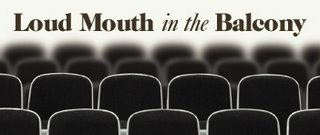
One of the ministers at my church is fond of saying, “Prayer doesn’t change things; it changes us.” Now, an exhaustive $2.4 million study on the healing power of prayer may have revealed just that.
The study, conducted at six venerable medical centers, including Harvard University and Mayo Clinic, divided 1,800 patients into three groups. All were recovering from coronary bypass surgery. Strangers—all Christians—prayed for patients in two of the groups. The prayer was simple: a speedy recovery with no complications. One group knew that prayers were being offered for them; one did not. None of the strangers prayed for the third group; and the group was none the wiser.
Did those who received prayer support fare better than their cohorts? Actually, no. In fact, what stunned the medical researchers was that patients who were aware that others were praying for them had more complications than the others—including those who received no prayer support.
For a great many of the faithful, particularly New Thought Christians, this comes as no surprise. It’s not that these Christians don’t believe in prayer. They simply have a different view of what prayer is.
This worldwide non-denominational group that adheres to the teachings of Jesus of Nazareth identifies more with spirituality than religion. Consequently, they generally don’t read or teach any version of the Bible in isolation. They typically supplement holy scripture with ancient, theological, or scholarly texts that help them understand the languages and idioms of ancient people, as well as the historical, cultural and political climates in which Biblical scribes lived and wrote.
Like Jesus, New Thought Christians hold a non-theistic view of the Divine. In other words, they don’t view God as a supreme or supernatural Being that resides outside of us and manipulates events externally. To them, God is within us, constantly present through the Holy Spirit.
While that thought is not “new”, and neither is the movement, it’s certainly a more modern view of God than that of early man who struggled to define the Divine. As former Roman Catholic nun Karen Armstrong, author of A History of God, explains in her most recent book, A Short History of Myth, “Humans have always been mythmakers.”
Unable to explain certain natural phenomena, Armstrong says, early man created myths about gods and goddesses who looked and acted very much like humans. They had a gender, a physical body, personality traits, and they shared the same range of emotion as humans—from absolute calm to vengeful, sadistic rage.
Early man also believed that, like themselves, the unpredictable temperament of the gods and goddesses could be appeased. With the proper set of words, actions, or living sacrifices, man could calm their rage and consequently control or even halt the occurrence of natural disasters.
These beliefs were passed down as oral history for thousands of years. Today, many still believe that, through prayer, they can convince God to scrap His plans, and adopting theirs. Most are not aware that these petitions actually reveal a lack of trust in God to solve problems for the highest good of all concerned.
In this case, the researchers and petitioners assumed that what they desired for these patients was what the patients or the Holy Spirit within them desired. For some of these souls, complications from surgery may have been their “exit strategy” from the body, in perfect accord with their established timetable. Let’s face it; no soul has ever intended to stay here, evidenced by the fact that no soul ever has.
Prayer doesn’t change things. It changes us. Prayer time is an opportunity to consciously connect with the Divine within us, listen, and trust that It already knows our desires and will unfailingly resolve everything for our Highest Good.
If someone were to ask a crowd of people if God had ever granted their prayers, most, if not all of them would say, “Yes.” However, the same people could also cite many prayers that were not granted. This leads us to the ancient and, I believe, erroneous conclusion that God is unpredictable or capricious, rather than absolute and unchanging. Tomorrow they’ll talk to a friend or they’ll read a book that will advise them that they didn’t say or do the right thing to convince God that their desired outcome was the perfect outcome. After all, it’s all about what we want, isn’t it?
Perhaps this is what they spent $2.4 million to determine. Unfortunately, this costly study unwittingly rested on ancient myths that if we behave a certain way, God will say, “Eureka! I hadn’t thought of that solution. Let’s do it your way.”
Does this study prove that God is inconsistent or that prayer doesn’t always work? One could certainly conclude that. Alternatively, one also could conclude that what really doesn’t work is any attempt to control God.
There’s no dispute that prayer always works when it is in alignment with God’s will, rather than our own. A generic prayer such as, “I release this problem to God, knowing that it will be resolved for the Highest Good of all concerned” creates that alignment. It says, “God, I trust You to work this out perfectly. I detach myself from the outcome and allow Thy will to be done.” The outcome might not be what we hoped, but we can be assured that it is the perfect outcome.
Now there’s a new Christian thought: How about creating more productive ways to spend $2.4 million than testing the all-knowing, all-powerful, ever present Holy Spirit?

One thought on “Researchers say that you don’t have a prayer. Now what?”
Comments are closed.